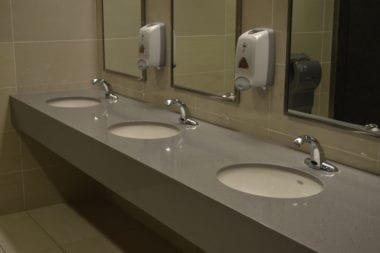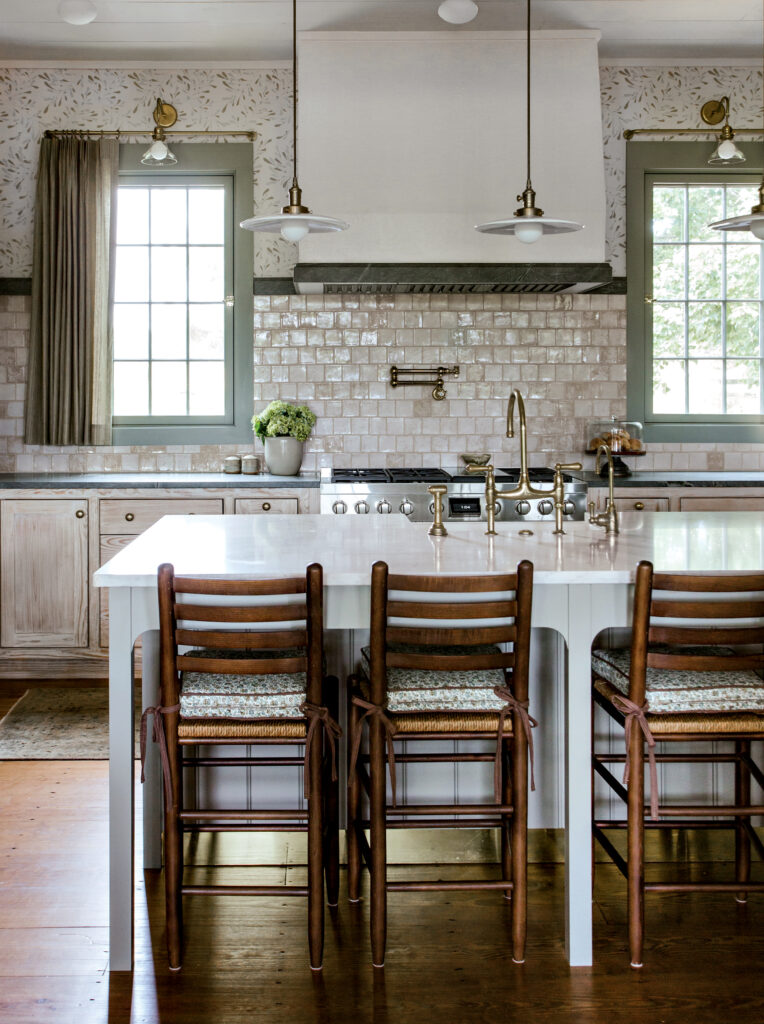By Gabrielle Golenda | The Architect’s Newspaper |
As many states push to reopen after months of the stay-at-home mandate, architects, designers, and public health experts warn of the potential dangers in sharing public spaces once again—namely, in the bathroom. In response to coronavirus pandemic, manufacturers are answering with new products that reduce the touching of surfaces and limit contact with other people. Moving forward, public bathrooms will incorporate innovative design solutions and touchless technologies—like sensor taps and automatic doors—to prevent germ spread, and, potentially, a second wave of the Coronavirus.
Architectural hardware purveyor ASSA ABLOY has introduced an entire suite of opening solutions that require little to no contact for improved hygiene. These include automated technologies like motion sensors and wave-to-open switches, as well as hand-free hardware like foot pedals and hip pulls. “Hands-free solutions offer quick and easy retrofit opportunities. They offer a way to improve facility cleanliness by reducing touchpoints on highly trafficked openings,” said Stacey Callahan, vice president of ASSA ABLOY’s Door Group.
Meanwhile, in the loo, designers are opting for turn-around corner entryways in lieu of standard entry doors. This kind of solution is already commonplace in public bathrooms at airports, public beaches, and theme parks.
Introducing a touch-free sink, commercial building products manufacture Bradley Corp. revealed a design that combines soap dispensing, water washing, and drying in one. “Now, more than ever before, touch-free handwashing technologies are at the forefront of limiting the spread of germs in public restrooms,” said Will Haas, senior product manager, Bradley Corp.
At the same time, concerns about contaminants being propelled in the air, either by hand dryers or automated toilet flushing, have led to the suggestion of stalls complete with sink and paper towel dispensers. Some manufactures are coming out with custom fabricated floor to ceiling partition systems to minimize airflow between stalls. On the other hand, some experts advocate for completely single-stall restrooms in multiples, which are both completely self-enclosed and gender-neutral. CARVART, a custom glass fabricator, manufactures non-porous shields to prevent microbes from entering the surface and withstand harsh cleaning products. “They are in high demand at public-facing businesses across North America that include pharmacies, healthcare facilities, grocery stores, banks, shippers, government institutions, and many others to protect both the essential employees and their customers,” said CARVART CEO Edward Geyman.
For manufacturers and architects alike, restroom design will need to be seriously reconsidered. In both new designs and retrofits, a snafu of issues like gender diversity, accessibility, and prevention of virus spreading provide new opportunities to explore new, useful design solutions. Hopefully, this will be coupled with new building codes that will enforce hygiene measures, that, in turn, help the public to feel safer in the wake of COVID-19.
About ARCHEN News
ARCHEN News is a digital media platform connecting manufacturers of building products with the architectural, design, construction, engineering, property management, and contractor communities, promoting new product releases and interesting projects. contact@archennews.com or (646) 494-5102





